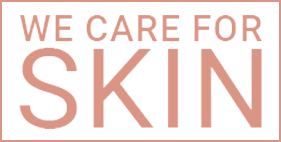Pimples, breakouts, spots, and zits – whatever you call them, they can be extremely frustrating. In medical jargon, these bumps are collectively called acne.
Acne is a skin condition that shows up as different types of bumps, which can be whiteheads, blackheads, nodules, pustules, pimples, or cysts.
Acne treatments are available, but in some instances, you want readily available remedies at home. You may want to pop that pesky pimple, strip the skin by over-exfoliating, or dry the acne out by not using a moisturizer. All these can cause more harm than good.
Consulting a dermatologist for proper, effective, and safe treatment options is important to get rid of acne once and for all.
But First – What is Acne?
Acne is a chronic, inflammatory skin condition that causes pimples, spots, and bumps on the face. It can also occur in other parts of the body such as the back, shoulders, chest, neck, and upper arms.
In the Philippines, the Research Institute for Tropical Medicine (RITM) reports that acne is the most common skin condition, affecting about 17 million Filipinos. A majority of those affected with acne are teenagers between 10 and 18 years old.
Further, the Philippine Dermatological Society cites common acne features in most patients. These include the presence of whiteheads and blackheads, red bumps that sometimes contain pus, and cysts or nodules in severe cases.
Though acne mostly occurs in teenagers, adults can experience it, too. In most cases, women who experience hormonal changes may develop acne. Some of the most common factors that influence or worsen breakouts include hormonal change, family history, stress, and food with a high glycemic index.
What causes acne? Acne occurs when the skin pores become blocked with dead skin, oil or bacteria. Usually, this happens when there is too much oil produced by the follicles, bacteria accumulate, and dead skin cells build up in the pores.
There are also several risk factors that influence the appearance and severity of acne. First, hormonal changes, particularly increased levels of androgen, can cause acne. Other risk factors include emotional stress, menstruation, some medications that contain lithium or androgen, and greasy cosmetics, to name a few.
Treating Acne
Acne results from clogged hair follicles from oil, dirt, or dead skin cells. When this happens, the pores create small, localized infections or pimples.
Simple remedies to treat acne can be done at home. Using mild soap and water or cleansers can clear breakouts. At-home treatments can help clear acne in some people but some may irritate the skin.
Currently, there are many acne treatments available in the market. However, self-medicating may cause more harm than good. It is recommended to get a doctor’s advice to help find the appropriate treatment for you.
Might Go Wrong with Self-Medication
Many individuals opt to self-medicate and buy over-the-counter remedies for their pimples. It can be hard to know when it’s time to see a dermatologist for acne. You may say it’s just pimples, so why bother. The truth is, many people can benefit from seeing a specialist treat the problem now than later when the condition worsened.
Delayed Treatment
When you deal with the skin, which is delicate and sensitive, it’s always better to be safe than sorry. Delaying the right acne treatment can cause severe complications, including infection, scarring, and skin changes.
Acne treatments take time regardless of whether you’re managing mild or severe acne. Hence, it takes less time and effort to clear a few pimples than mixed breakouts. Treating acne early with the help of a doctor can reduce the time needed to clear the skin.
Pitted Skin, Scars, and Keloids
Initiating early acne treatment can prevent scars, the appearance of pitted skin or keloids. The more severe the ace, the more likely it is to form scars. When the right treatment is given early, it may reduce the risk of scarring, which can take a toll on your self-esteem, confidence, and body image.
Severe Acne
When acne is left untreated or managed with ineffective treatments, it can worsen to severe acne. It may take longer to heal and could progress to widespread blackheads, whiteheads, and deep, painful pimples.
Hypersensitivity
Many individuals can be allergic to some contents in over-the-counter skincare regimens. If your skin is sensitive, you might want to consult with a dermatologist before purchasing any product for your skin. Apart from worsening the acne, your skin might get irritated, and in severe cases, you can get an anaphylactic reaction.
The symptoms of allergy include severe redness with burning or itching of the skin, serious skin irritation, cracking, peeling, scabbing, swelling of the skin, eyes, tongue, or eyes, and rashes or hives. People with severe allergic symptoms may require emergency medical attention to prevent potentially life-threatening complications.
Proper Acne Treatment
Dermatologists can offer tailored acne treatments that can help clear out breakouts, depending on your skin type.
Here are some of the safe and effective acne treatments:
Topical medications
The most common type of topical medications for the treatment of acne includes retinoids, antibiotic creams, salicylic acid, and azelaic acid.
Retinoids
Retinoids are drugs that contain retinoic acid or tretinoin. These come as gels, lotions, or creams. Topical retinoids are used to control comedonal acne, which forms when excess oil and dead skin cells block or clog the oil-producing glands in the skin.
The common retinoids used are tretinoins like Avita and Retin-A, adapalene or Differin, and tazatotene or Tazorac and Avage.
Antibiotic Creams
Antibiotics treat bacterial infections that cause acne breakouts. Prescription antibiotic creams usually contain clindamycin, which can kill excess skin bacteria to reduce redness and inflammation. The antibiotics are usually used in combination with benzoyl peroxide to reduce the risk of antibiotic resistance. Some of these drugs include clindamycin with benzoyl peroxide like Duac and Bezaclin, and erythromycin with benzoyl peroxide such as Benzamycin.
Oral Medications
Doctors may also prescribe oral medications for severe acne. The most common medicines include antibiotics, oral contraceptives, anti-androgen pills, spironolactone, and isotretinoin.
Antibiotics
Oral antibiotics are prescription drugs used to reduce bacterial growth. Further, these can also cut down on inflammation especially in inflammatory acne where you have painful red bumps and pus-filled whiteheads.
Generally, the first line of antibiotics prescribed is tetracycline or macrolide.
Combined oral contraceptives
Some people, especially women, develop acne as a result of hormonal changes. Regulating hormone levels can help improve acne. Four combined contraceptives are approved by the Food and Drug Administration (FDA) for acne. These include products that combine progestin and estrogen.
Anti-androgen agents
Anti-androgen agents, including spironolactone or Aldactone, may be considered to use in women and adolescent girls if oral antibiotics are not working. It helps block the effect of androgen hormones on the oil-producing glands, hence, stops them from producing too much oil.
Isotretinoin
Isotretinoin is a strong and effective way to treat severe acne. It is a derivative of vitamin A, which is prescribed in people whose severe acne has not responded to other remedies. The common brands available include Accutane, Absorica, Clavaris, and Acnetrex, among others.
The drug works by reducing the size of oil glands so they make less oil and helps regulate skin cell turnover. The drug is effective as it can help put acne into remission. It is considered the most effective treatment for severe acne, but it should be prescribed by a dermatologist.
Is it safe to take isotretinoin? The drug is considered safe, but it requires patients to have regular consultations with their dermatologists. It is not recommended to take it for mild acne. Hence, self-medicating with the drug can cause potential side effects.
Treating acne can be daunting and difficult, but with the proper treatment prescribed by a dermatologist, it can be achieved. Having clear and smooth skin will help us develop self-esteem and a positive body image. Don’t let acne come in the way, preventing it from progressing can help reduce treatment time. Visit a dermatologist to know more about the acne treatments suitable for you.


